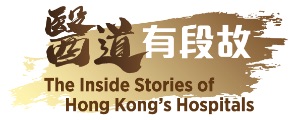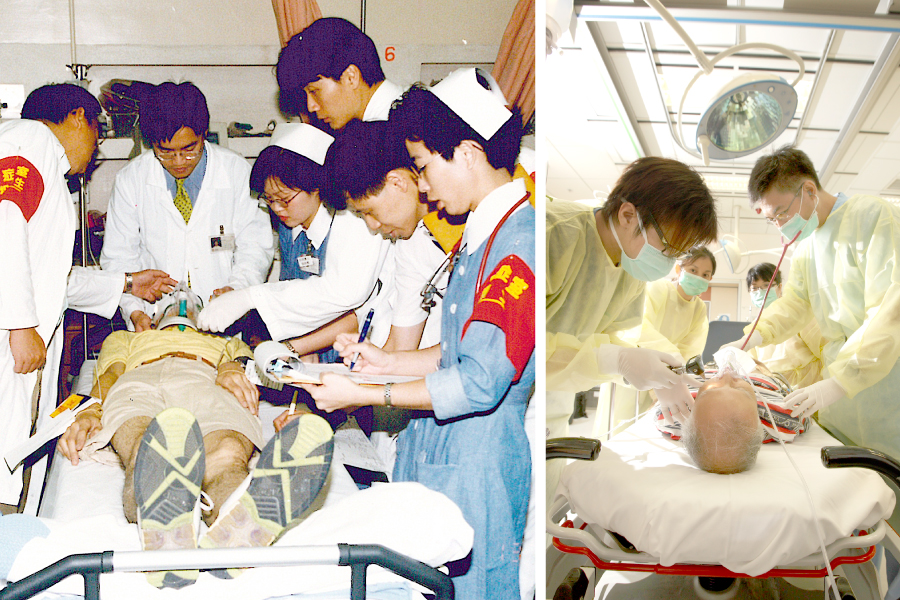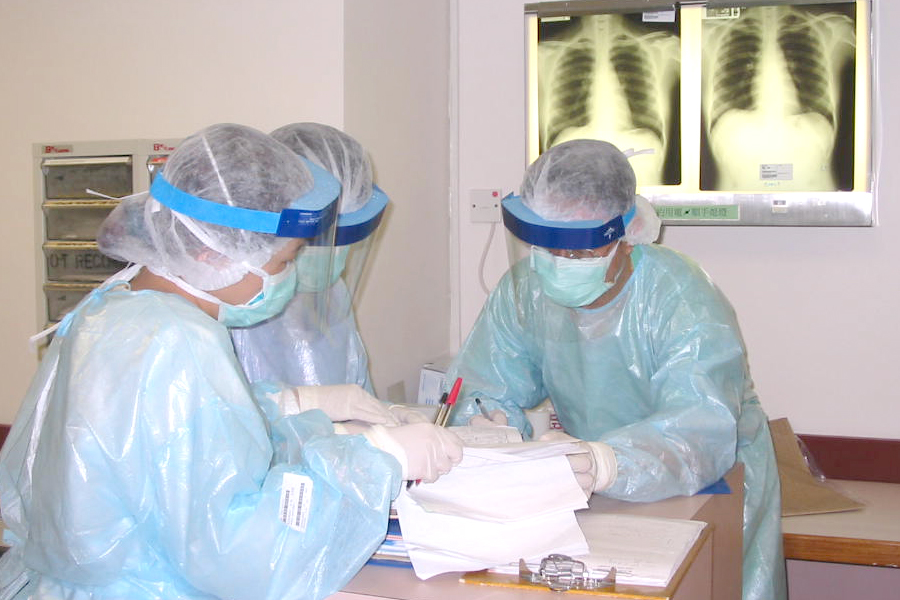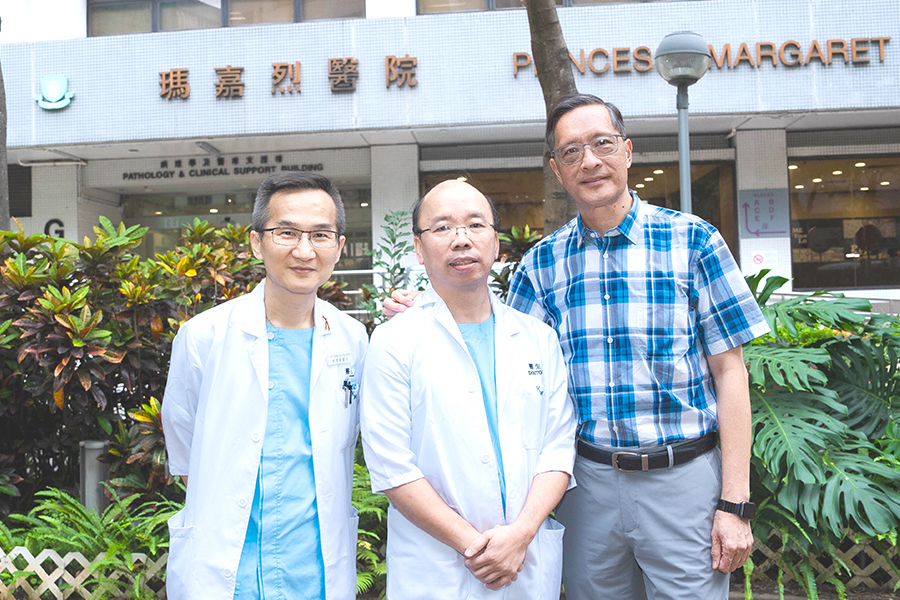
Lessons in life from PMH’s challenging history
 It is the hospital that cared for victims of an explosion at the Cipel-Marco factory in Kwai Chung in 1986, a fire at Mei Foo Sun Chuen in 1997, and a flight crash at Chek Lap Kok Airport in 1999. Princess Margaret Hospital (PMH) has been at the eye of the storm through a succession of disasters and major incidents from the moment it opened its doors ahead of schedule in 1975 to help deal with an influx of Vietnamese refugees. Reflecting on the hospital’s windswept past, three veteran staff say their colleagues have always risen to challenges and set major milestones by being at the forefront of the fight against epidemics and pioneering kidney transplant surgery. The hospital strives constantly for reform and innovation to provide the best healthcare possible.
It is the hospital that cared for victims of an explosion at the Cipel-Marco factory in Kwai Chung in 1986, a fire at Mei Foo Sun Chuen in 1997, and a flight crash at Chek Lap Kok Airport in 1999. Princess Margaret Hospital (PMH) has been at the eye of the storm through a succession of disasters and major incidents from the moment it opened its doors ahead of schedule in 1975 to help deal with an influx of Vietnamese refugees. Reflecting on the hospital’s windswept past, three veteran staff say their colleagues have always risen to challenges and set major milestones by being at the forefront of the fight against epidemics and pioneering kidney transplant surgery. The hospital strives constantly for reform and innovation to provide the best healthcare possible.
Compassion for burn victims of tragedies
PMH frequently dealt with accident victims from the rapidly developing new towns and factory clusters in West Kowloon and New Territories South in the 1980s and 1990s. Philip Choi, former Cluster General Manager (Nursing) of the Kowloon West Cluster, vividly remembers the heartbreaking aftermath of the Cipel-Marco factory explosion that claimed 14 lives and 10 injuries. “There was a constant smell of burns coming from the burn ward. Seeing survivors in excruciating pain while cleaning their wounds was so distressing,” he recalls.Philip has worked in the Accident & Emergency (A&E) Department of PMH since the 1980s and says he was deeply moved by the tragic incidents he handled, such as the Mei Foo Sun Chuen fire. “We converted the operating room in A&E into a temporary mortuary and allowed family members to say their final goodbyes,” he says, remembering the parents of a daughter who placed their daughter’s favourite doll alongside her as her life ebbed away. “It reminded me of my own child and everyone’s eyes were moist,” he says. “The tragedy led to reforms in A&E services, especially in the pre-hospital severe trauma diversion services where we began to triage patients to different hospitals to accelerate their treatment.”
Life and death decisions during SARS
Hong Kong was gripped by the SARS crisis in 2003. Dr Owen Tsang, currently the Medical Director of the Hospital Authority Infectious Disease Centre, had just completed specialised training in infectious diseases at that time. “Up to that point, I had dealt mostly with tropical infectious diseases and I never expected such a large-scale community outbreak to catch everyone off guard,” he says. PMH was the designated hospital for SARS and handled more than one third of SARS patients in the territory. “However, its Intensive Care Unit (ICU) was overloaded within a week. Some colleagues worked hard to save patients, while others who confirmed with SARS turned out to be the ones being saved,” he reflects. “Everyone faced tremendous pressure while continuing their work.” Philip then faced the most difficult decision of his life – deploying over 40 A&E nurses shortly and deciding who would stay in the A&E and who would support the SARS wards or the ICU team. “It was extremely difficult to choose 10 colleagues to support the ICU, and sadly some of these colleagues were later diagnosed with SARS,” he says. “Fortunately, after experiencing such a life-and-death ordeal, our colleagues became even more united.”
Philip then faced the most difficult decision of his life – deploying over 40 A&E nurses shortly and deciding who would stay in the A&E and who would support the SARS wards or the ICU team. “It was extremely difficult to choose 10 colleagues to support the ICU, and sadly some of these colleagues were later diagnosed with SARS,” he says. “Fortunately, after experiencing such a life-and-death ordeal, our colleagues became even more united.”
Dr Lai Tak-wing, PMH Deputy Chief Executive (Clinical Services) and Consultant of Surgery Department, says PMH is a hospital with human touch. The team is willing to innovate and believes that challenges provide opportunities for the hospital to learn and develop, he explains. “PMH has started plastic surgery service in the late 1970s. It was also the first Hong Kong hospital to perform living unrelated kidney transplantation and introduced minimally invasive surgery at an early stage such as laparoscopic hernia surgery.
“The healthcare professionals always encounter challenges, and we must nurture the next generation of professionals to face head-on,” Dr Lai reflects.
